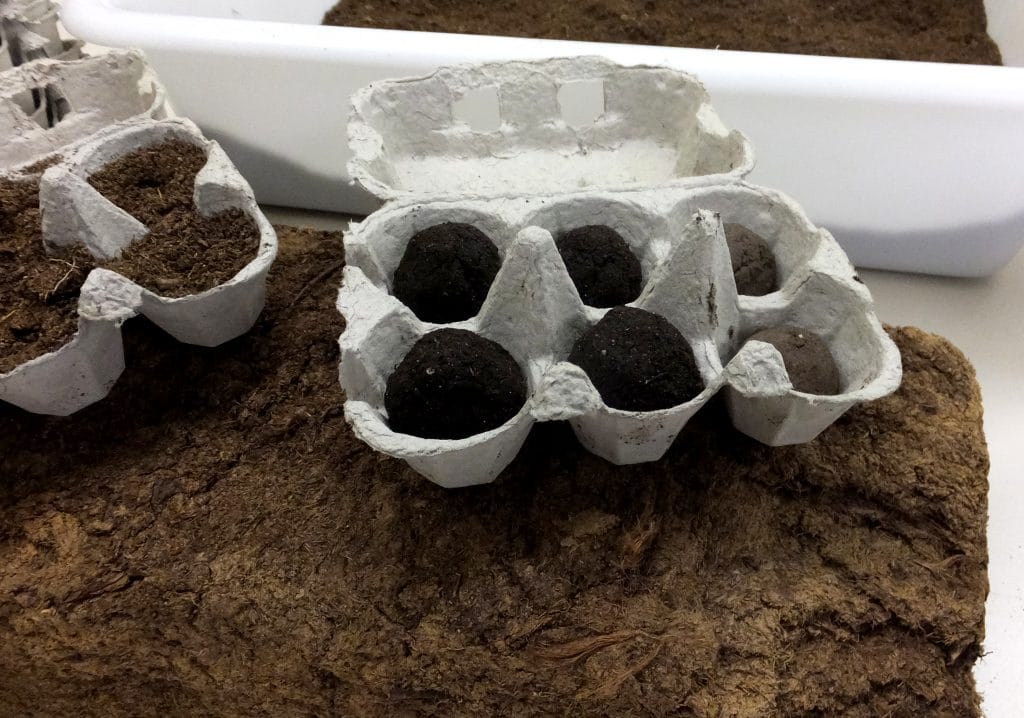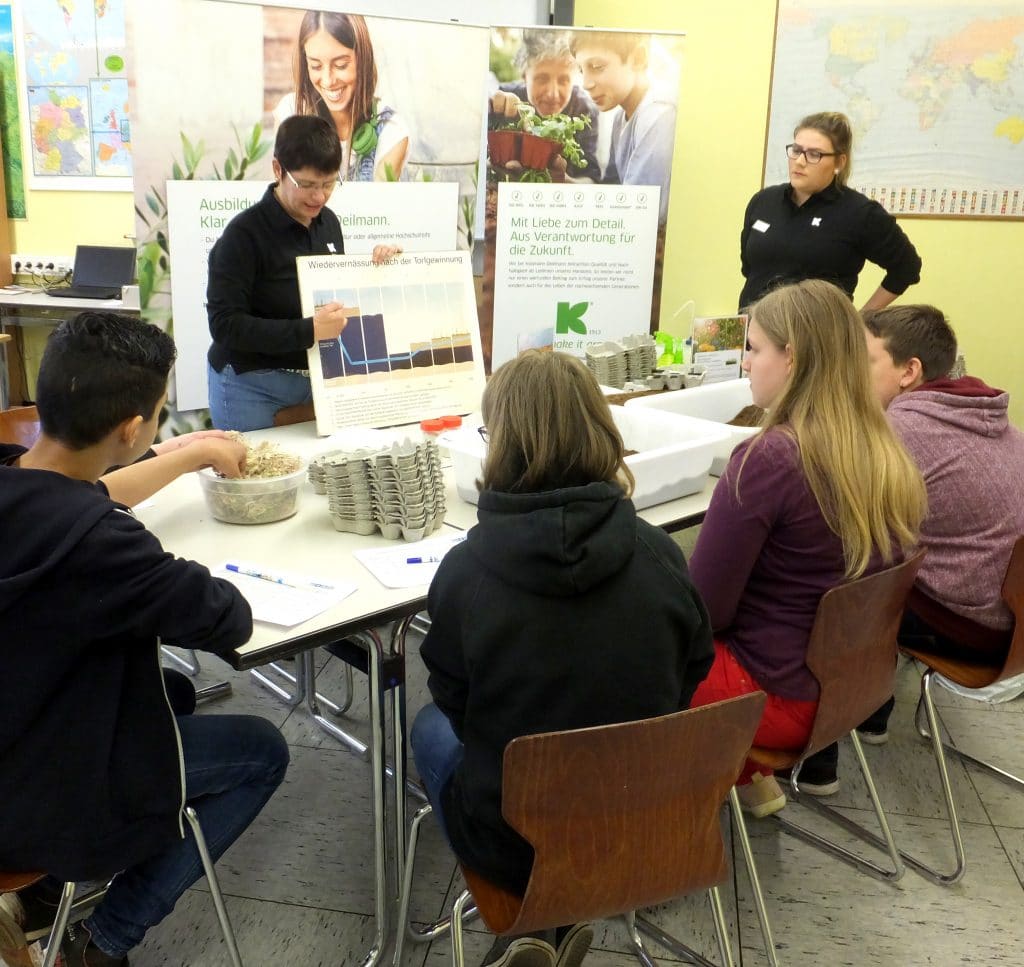Career guidance in Geeste
Pupils make seed balls
Klasmann-Deilmann is a manufacturer of growing media. “What is that, actually?” is a question that is presumably not only asked by youngsters in the eighth grade who are beginning to think about a career. Pupils from Geschwister Scholl School in Geeste found out the answer when they joined us for a day of career guidance.
The youngsters are gathered around a table where they are using their hands to shape growing media into balls the size of golf balls. Using their little fingers, they make a hole in the ball into which they put flower seeds. With a few deft movements, they close the hole again – and that’s all it takes to produce a seed ball of growing media and flower seeds.
Growing media

Growing media and potting composts are made from a variety of raw materials, which include peat, green compost, wood fibres, coco fibres, fresh clay, sand, lime and fertilisers to ensure a supply of nutrients. As different types of plants have different requirements, there is a wide selection of growing media. But what does the job of those people who produce and sell growing media actually involve?
Practical career guidance
The Practical Career Guidance programme is intended to deliver answers to questions like these. It was organised by BNW, an educational institute run by various employers’ and business federations in Lower Saxony, in cooperation with the career guidance department of the Federal Employment Agency. The programme is intended to prepare youngsters attending the lower grades of secondary school to decide whether they wish to focus on subjects that will lead to a career in a technical occupation, in the health or social sector or in business.

Occupations at a producer of growing media
- Horticultural engineers who have a Bachelor’s or Master’s degree are responsible for the quality of our raw materials, they develop the substrate recipes and advise our customers.
- Before production can begin, heavy-duty equipment, such as caterpillar-track vehicles, is used to extract the raw materials. At the company sites, wheel loaders are used to transport the raw materials to the production lines. This is where construction equipment operators are employed.
- Electronics engineers and industrial mechanics are also needed, e.g. for maintenance of this heavy-duty equipment and the machines in our factories.
- Biological and agricultural lab assistants work in our laboratories and inspect every production batch before it leaves the premises to ensure that the pH value and the fertiliser content are correct.
- Industrial business administrators work in our sales department where they process the orders acquired by our local sales companies from their customers.
- Business consultants with a horticultural background are employed all over the world. They regularly visit our customers to provide them with practical help and assistance.
- The employees in our logistics departments are qualified forwarding agents who make sure that our products reach the customer on time. They plan the transport by rail, truck or container vessel.
Tips for starting a career
A feedback session allowed the eighth-grade pupils to exchange ideas and information with the professionals. All the employer’s representatives were agreed on two pieces of advice for pupils embarking on a career:
- Work placements are an excellent way to find out what occupation really suits them. They give pupils the opportunity to get to know and try out the work that is typically involved in the occupation concerned.
- School grades: The grade awarded for effort and social behaviour is at least as important as the subject grades. If the grade here is “corresponds to our expectations in full” or even “deserves special recognition”, this is more important from the HR manager’s point of view than an excellent grade in mathematics.
Our Training Manager Andrea Bruns comments: “We are looking for trainees who are actively committed to their vocational training and who fit in with our company. The grades for social skills, effort, neatness etc. play an important role when we decide whether or not we ask the applicant to come for an interview. A positive personal impression in the course of a work placement, of course, has an even stronger impact.”